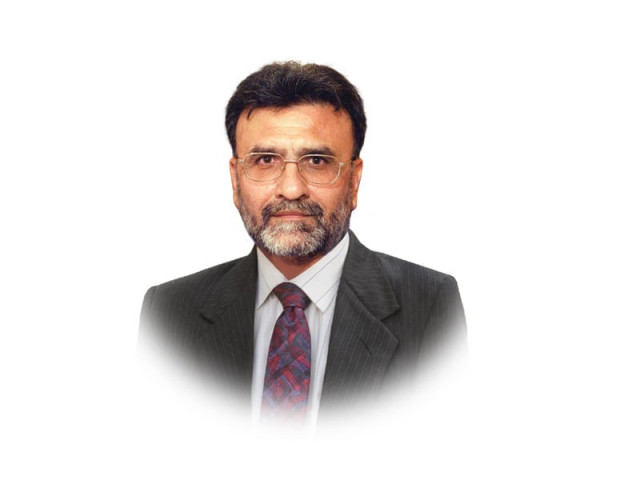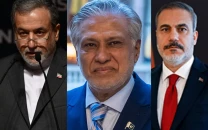Swansong legislation to fight terror has curious logic
Army has been keeping around 3,000 militants, captured in Swat, in various camps for the past four years.

Nusrat Javeed
Then in 2009, “Mullah Radio” had established full control over the Swat valley. The state of Pakistan desperately needed to restore its writ there. Gilani had to hold an all-party conference at his secretariat. Some diehard democrats on this side of the Suez, people like Nawaz Sharif and Asfandyar Wali, attended that conference. In the end, however, they issued a joint statement conceding all powers for restoring normalcy in Swat to General Ashfaq Parvaiz Kayani. He led a massive operation without any input or oversight mechanism furnished by the elected civilians.
The Army has been keeping around 3,000 militants, captured in Swat, in various camps for the past four years. Its commanders apprehended that if tried by the normal courts, most militants would soon be out on bail. They kept anxiously looking up to our legislators to conceive, draft and pass special laws with the specific intent of punishing the Swat-connected militants. No one really cared and finally the military hired a private law firm to prepare draft of a proposed law. The ministry of law and justice pounced on it excitedly and passed it on to the parliamentary committee concerned. Exactly eight days before its dissolution, the national assembly has now passed the same law to establish National Counter Terrorism Authority (NECTA). “Why now?” is the question, though.
After approaching some minister with this question, I got the feeling that the government seriously believed that during the coming two months of the interim government, the law enforcers would aggressively use NECTA to hit the growing safe havens of deadly terrorists in cities like Quetta and Karachi. This will also help politicians to concentrate on election campaign without any fear of attacks on their persons and public rallies.
But in haste to establish and empower NECTA, so close to the next election, our representatives seemingly paid no heed to ‘the message’ two full months of possibly effective control by our law enforcers would convey regarding the elected government’s capacity for governance.
For many months, powerful lobbies in Islamabad have been talking about the possibility of setting a government of “honest, able and patriotic technocrats” for a longer term. Nawaz Sharifs of this world continue to believe that through crafty management of the power scene they have subverted any chances of such government. Cynics like me are yet not convinced. Hafeez Sheikh continues to sound too sure to his close friends, although some of his promoters from among the lot of retired generals have stopped taking his calls for around a week. President Zardari is not helping either.
A minister known for active access to the Presidency told to me rather discreetly, “keeping in view some forces’ desire for having an economist as the caretaker prime minister, we will not mind promoting the name of Dr Ishrat Hussein as the caretaker prime minister.” A peculiar group of weighty socialites, who wine and dine in some old but posh houses of Clifton at Karachi, is promoting him as well.
Quarters close to Nawaz Sharif, however, emanate different vibes. The PML-N, they suggest, will adamantly oppose the appointment of any person as the caretaker prime minister who has a history of being friends with the World Bank and Rawalpindi and thus the potential of leading the government of technocrats for a longer term. The opposition will not resist, however, if “they” nominated the interior and the foreign minister for the caretaker set-up. No wonder, a big group of former ambassadors to important foreign countries and retired government secretaries remained busy in holding extensive meeting in Rawalpindi throughout Friday.
Published in The Express Tribune, March 9th, 2013.



















COMMENTS
Comments are moderated and generally will be posted if they are on-topic and not abusive.
For more information, please see our Comments FAQ